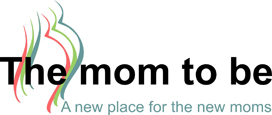|
Congratulations! You are now a new mom and all the tumult that affected your body in such a profound way is over. Your life has changed forever in a delightful way and your baby's life is just beginning. Both mom and baby are adjusting to changes in life. You are adapting to the fact of being a new parent and your baby is dealing with the biggest shock that is the beginning of life and the need to adapt to the outside world. Now he has the hard task of activating all his tender senses like smelling, hearing, tasting, touching and recognizing things in the evolving environment.
The baby
In the first hour, after birth, generally babies are very alert what allows them to adapt to their new reality. Usually they also have their first breastfeeding during this period. When you breastfeed your baby will start to urinate eight or more times a day. It is normal and a less frequent urination could mean that is not getting enough fluids. Be sure that you feed your baby at least eight times a day. The baby first stools will dark green and tarry meconium. They will gradually change color and if you are breastfeeding they will turn yellow. In the first month, your baby will have at least one bowel movement per day. After this time he may poop more or less frequently.
Make sure that your that your baby's umbilical cord stays dry and if you notice some bleeding or signs of an infection (foul smell, a red area around the base of the cord or pus) call the baby's doctor. If everything will go as it should be, the cord will dry up and will fall off about seven to ten days after the baby's birth.
Getting through the first month is a great accomplishment and don't worry if you feel a little bit lost. You have many things to learn and you have to give it some time. Be loving, attentive and try to meet your baby's needs because this will build a lifetime of trust and caring between you.
Behavior
Starting on day one, your baby will start to show his preferences for some things. His senses are functioning and he will turn his head toward new sounds, smells and light changes. He recognizes voices, especially yours and his body will tense up or relax depending on how he is touched. He is able to clearly see objects approximately 12 to 18 inches away. During this stage he especially likes to observe sharp contrasts. The colors that are more stimulating to him are the red, white and black contrasts. He is learning to adapt psychologically and physically to the complex world that surrounds him. He seeks comfort, food, rest and to create a bond of love with his mother. He don't know how to communicate with you, so when he needs something he will tense his body, cry and will turn his head when he hears a sound or feel his mother's breast.
He will react to the world depending on his personality. Some babys are quite and relaxed and they only cry when they need something while other ones are very active and they tense their body and kick randomly. There are others that seem to be in control of their body movements, and they move rhythmically and seem to a have some deliberation in doing so.
Every baby react in different ways and you will learn to read your baby's body language and you'll adjust to is physical needs and create for him some routines that will help him to be balanced and be healthy emotionally and physically.
Each baby is an individual and the discover of what are your baby tastes is an adventure. Try to interact with him in different ways and experiment what he may like.
|

